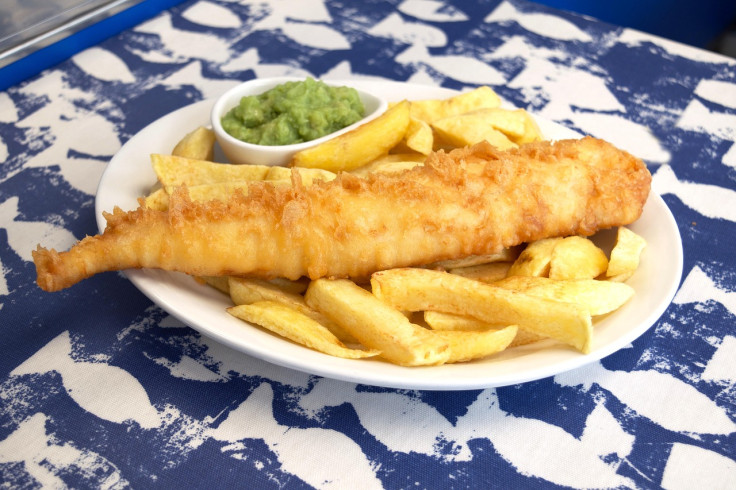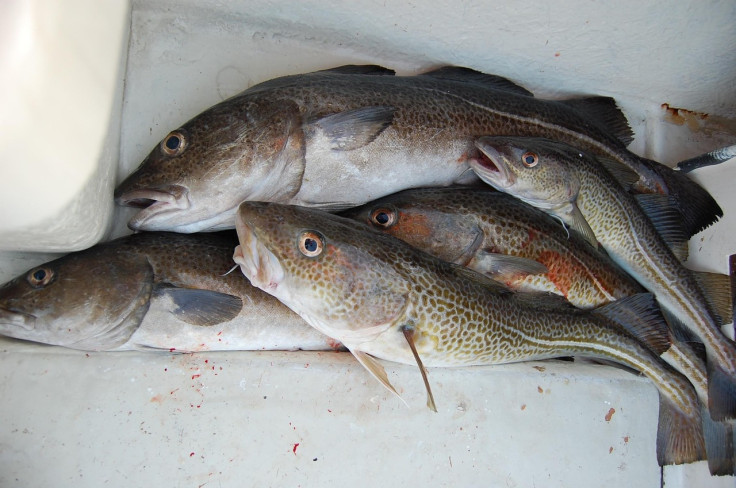UK Fish and Chips Shortage Looms as Cod Supply Depletes to Dangerous Levels Due to Overfishing
Fish and chips supply may run low in the UK due to cod overfishing

Ordering fish and chips in the UK may soon be a challenge, after scientists warned fishermen to limit catching cod in British waters to prevent overfishing.
The International Council for the Exploration of the Sea (ICES), an independent organisation that issues guidelines to governments regarding fish stocks management, has determined that the cod population in most parts of British waters is dangerously depleted.
The Denmark-based organisation also ruled that cod fishing in the 'northern shelf' must be banned in 2026 to help the species' supply recover. It includes the waters of the English Channel, the waters of the North Sea, including Norway and the western part of Scotland.
ICES also issued previous warnings about cod overfishing in the Celtic and Irish seas.
Limit to 11 Tonnes for Sustainability
While the independent body suggested in 2024 that fishermen can be allowed to catch 15,000 tonnes of cod from these areas, they are now suggesting that the only place for catching this species should be the waters surrounding the island of Rockall in the north Atlantic. But they also warned to limit the catch to 11 tonnes for sustainability.
The limit would be enough to produce at least 55,000 fish suppers, or approximately one meal for every 1,200 people ordering in Britain, according to an estimate from The Times.
In their advisory, the organisation wrote: 'Northern shelf cod consists of three substocks (northwestern, southern, and viking) which mix and are caught together. ICES advises that when the maximum sustainable yield (MSY) approach and precautionary considerations are applied, there should be zero catch in 2026 for all substocks.'

Alternative Quota
The organisation also offered an alternative scenario based on MSY calculations without the precautionary considerations for two of the mentioned substocks. Based on this method, the cod catches in 2026 should be limited to 8,670 tonnes for the Northwestern substock and 3,610 tonnes for the Viking substock. No catch should be taken for the Southern substock.
Yet ICES noted that this approach would end up in a 67% chance of the Southern substock dropping below the critical biomass limits (Blim).
Even with a total closure, the danger of this cod population falling below the critical limits by 2027 may still reach 44%.
Proper Timing Could Help
ICES' advice noted that cod fishing during the first quarter of the year may help lessen the risk to the Southern substock, since the three groups are believed to divide geographically during this time. It could allow fishing to concentrate on the more stable Northwestern and Vikings population.
However, the independent body also warned that it may not be able to quantify the degree of stock mixing beyond the first quarter. The potential side effects of concentrated fishing efforts during the first three months of the year, as well as other factors such as ecosystem impacts and gear selectivity, have not yet been fully assessed.
Earlier Warnings and the UK Government's Response
Oceana UK executive director Hugo Tagholm told The Independent that science proved the 'grave danger of collapse' in North Sea cod population, which they already warned about in a fish stocks health check in 2023.
'Our warnings about multiple populations at risk were ignored, and since then we have had to watch helplessly as the UK government sold out our seas and communities, allowing fishing pressure to build relentlessly as the largest industrial vessels squeezed out the small local boats.'
'No one wins if we continue to empty our seas, stock after stock will follow cod, and once collapsed, these populations could take decades to recover,' the charity head added.
Meanwhile, a Department for Environment, Food and Rural Affairs (Defra) spokesperson stated: 'It is important the UK, EU and Norway come together to deal with the challenges of managing this international stock. We are committed to rebuilding it to sustainable levels and ensuring we maintain the long-term viability of the UK fleet.'
© Copyright IBTimes 2025. All rights reserved.





















